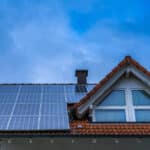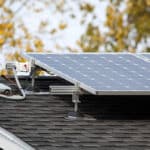5 Steps to a Successful Residential Solar Installation for Your Home
Welcome to the era of clean, sustainable energy! With the rising costs of electricity and a growing concern for our environment, more and more homeowners are turning to residential solar installation darwin as an alternative power source. Not only does it help reduce your carbon footprint, but it also allows you to take control of your energy usage and save on utility bills. If you’re ready to harness the power of the sun and embark on a journey towards energy independence, then this blog post is for you. In just 5 simple steps, we’ll guide you through the process of installing a residential solar panel system that fits your needs and budget. So let’s dive in and discover how easy it can be to go solar!
Why Go Solar?
Save on Energy Costs
One of the main reasons homeowners choose to go solar is the potential for significant savings on their energy bills. By generating your own electricity from the sun, you can reduce or even eliminate your reliance on traditional utilities.
Also Read: A Complete Maintenance Guide For Solar Panels
Environmentally Friendly
Solar energy is clean and renewable, which means it produces no harmful emissions that contribute to climate change. By choosing solar power, you’re taking a proactive step towards reducing your carbon footprint and preserving our planet for future generations.
Energy Independence
With a residential solar panel system, you have greater control over your energy consumption. Say goodbye to fluctuating utility rates and hello to stable, predictable energy costs.
Increase Home Value
Studies have shown that homes equipped with solar panels tend to sell faster and at higher prices compared to non-solar properties. Installing a solar panel system can be seen as an investment in both financial and environmental terms.
Government Incentives
Depending on where you live, there may be various federal or state incentives available to help offset the cost of installing residential solar systems. These incentives can include tax credits, rebates, grants, or favorable financing options.
By going solar, you not only reap immediate benefits like lower electricity bills but also contribute towards building a sustainable future for yourself and generations to come.
Assess Your Energy Usage
Understanding your energy usage is a crucial step in determining the right solar panel system for your home. By assessing how much electricity you consume on a daily basis, you can accurately calculate the size and capacity of the solar panels needed to meet your energy needs.
Start by reviewing your recent utility bills to get an idea of your average monthly consumption. Look for patterns or trends in usage that could help determine peak times of energy use. Keep in mind that certain appliances or activities, such as running the air conditioner or using high-energy devices like electric heaters, may contribute significantly to overall consumption.
Additionally, consider any future changes you anticipate making in terms of household size or appliance upgrades. These factors will help ensure that your solar panel system is designed with scalability and flexibility in mind.
To further assess your energy usage, there are several online tools available that allow homeowners to track their electricity consumption more closely. Some utilities even offer personalized dashboards where customers can monitor their real-time power usage and identify areas where efficiency improvements can be implemented.
Choose the Right Solar Panel System for You
When it comes to choosing the right solar panel system for your home, there are a few important factors to consider. First and foremost, you need to assess your energy needs. Take a look at your current electricity usage and determine how much power you will need from your solar panels.
Next, think about the size of your roof and how many solar panels can fit on it. Consider the direction that your roof is facing and if there are any obstructions such as trees or buildings that may shade the panels.
Another key factor in choosing the right solar panel system is the type of panels themselves. There are several different types available, including monocrystalline, polycrystalline, and thin-film panels. Each has its own advantages and disadvantages in terms of efficiency and cost.
You should also take into account any warranties or guarantees offered by the manufacturer or installer. It’s important to choose a reputable company with a good track record to ensure that you receive quality products and installation services.
Don’t forget about financing options for your residential solar installation. Many companies offer financing plans or leasing options that can help make solar more affordable for homeowners.
By carefully considering these factors, you can choose the right solar panel system for your home that meets both your energy needs and budget requirements.
Install Your Solar Panels
Now that you’ve chosen the right solar panel system for your home, it’s time to get those panels installed and start harnessing the power of the sun! This is a crucial step in your residential solar installation process, so it’s important to ensure that everything is done correctly.
You’ll need to find a professional solar installer who has experience with residential installations. They will assess your property and determine the best location for placing the panels. The ideal spot should receive maximum sunlight throughout the day without being shaded by trees or buildings.
Once the location is determined, it’s time to prepare your roof for installation. The installer will securely attach mounting brackets or rails to ensure that your panels are held in place even during extreme weather conditions. They will also make sure that all electrical connections are properly installed and grounded.
Next comes the actual placement of the solar panels on your roof. The installer will carefully position each panel according to specific guidelines and secure them tightly. It’s important to note that this process can take some time depending on how many panels you have.
After installing all of the panels, it’s crucial to conduct thorough testing before connecting them to your electrical system. A qualified electrician should inspect and verify that everything is functioning properly, ensuring both safety and optimum performance.
Installing solar panels requires expertise and precision, but once they’re up and running, you’ll be able to enjoy clean energy while reducing your carbon footprint. So sit back, relax, and watch as those rays from above power up your home!
Remember: Always hire professional installers like Oneroof Solar for a seamless residential solar installation Darwin experience!
Monitor Your Solar System’s Performance
Monitoring the performance of your solar system is crucial to ensuring that it continues to generate clean and sustainable energy for your home. By closely tracking its output, you can identify any issues or inefficiencies early on and take the necessary steps to address them. Here are a few key steps to effectively monitor your solar system’s performance.
Utilize Monitoring Software
Many residential solar installation come with monitoring software that allows you to track the production of each individual panel in real-time. This software provides valuable insights into how much electricity your system is generating, allowing you to detect any abnormalities or underperforming panels.
Regularly Check Data
Make it a habit to regularly check the data provided by your monitoring software. Look for any significant variations in electricity production, as this could indicate a problem with one or more panels or components of your system.
Conduct Visual Inspections
While monitoring software is useful, don’t underestimate the power of visual inspections. Take time every now and then to visually inspect your solar panels for any signs of damage, such as cracks or loose connections.
Keep an Eye on Shading
Shading from trees, buildings, or other obstructions can significantly reduce the efficiency of your solar panels. Monitor how shading patterns change throughout the day and year and consider trimming branches or making adjustments if needed.
Seek Professional Assistance
If you notice persistent issues with your solar system’s performance despite taking these measures, it may be wise to consult with a professional installer or technician who can conduct more thorough diagnostics.
By diligently monitoring your residential solar installation’s performance and promptly addressing any concerns that arise, you can maximize its efficiency and ensure long-term savings on energy costs while reducing carbon emissions.
Also Read: Future-Proofing Your Solar Power System: Is It Really Necessary?
Conclusion
Today, where sustainability and eco-consciousness are becoming increasingly important, residential solar installation is a smart choice for homeowners. Not only does it help reduce your carbon footprint and contribute to a cleaner environment, but it also offers significant long-term financial benefits.
By following the five steps outlined in this article, you can ensure a successful residential solar installation for your home. Start by understanding why going solar is beneficial and how it aligns with your values as an environmentally conscious homeowner.
So what are you waiting for? Join Oneroof Solar like countless others who have already made their homes more sustainable with residential solar installations! Take the first step today and contact us.



